- Home›
- Healthy Living›
- 6 Herbal Teas To Help You Get Relief From Headache
6 Herbal Teas To Help You Get Relief From Headache
By: Kratika Fri, 24 Feb 2023 4:30:12

Headaches come in all sorts of avatars, from your garden-variety dull throb to skull-blasting migraines replete with flashing lights. Whether you’re an occasional or frequent sufferer, a warm cup of herbal tea may ease your pain – sometimes, even as effectively as conventional medication! Nature’s bountiful garden of herbs offers a host of options and we’ve lined up some for you to consider.
But first, a quick look at what triggers headaches. Pain receptors in our head and neck, when stimulated by different factors, can set off a headache. Some common triggers include infections, extreme heat or cold, loud noise, injuries to the neck, head, or spine, or eye, ear, nose, and throat ailments. Other factors like high blood pressure, medication, diet, incorrect posture that strains the neck and back muscles, and hormonal changes can also cause headaches. While tackling your headache requires you to address the underlying cause, some natural remedies can ease the pain and discomfort.
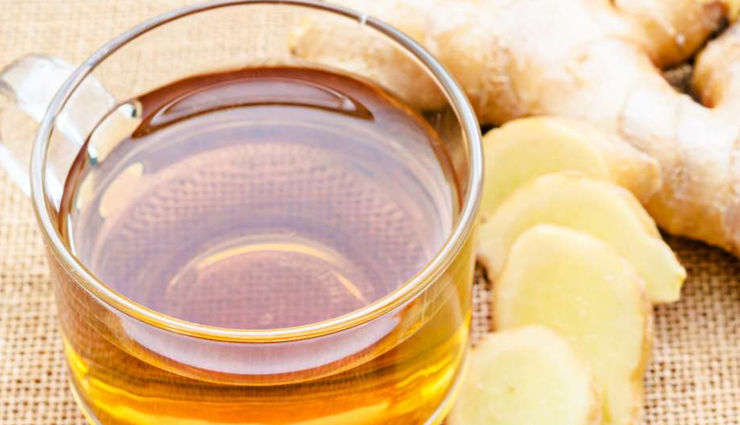
# Ginger Tea
Ginger is believed to ease tension-related headaches by blocking the release of pain-producing substances called prostaglandins in our bodies. Some headache sufferers have also found relief from migraine headaches that occur in the front of the head, and headaches caused by cold and windy weather.
How to make: Boil 1.5 cups of water in a pan, add about 2 teaspoons of freshly sliced ginger and 2 teaspoons of brown sugar and simmer on a low flame for about 5 minutes. Strain the tea and drink hot. You can add honey instead of tea if you like though there is no need to heat honey. You can drink about 3 cups a day when you have a headache.
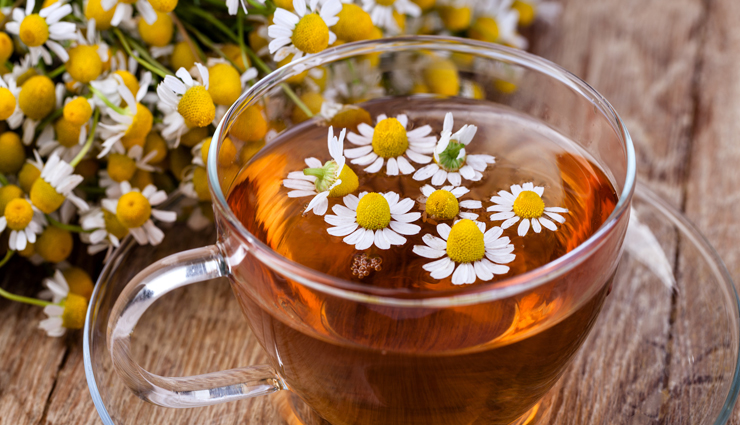
# Chamomile Tea
German chamomile contains an aromatic chemical compound called chamazulene that has anti-inflammatory, antioxidant, analgesic, antipyretic, and antiseptic properties. German chamomile, in particular, is a popular folk medicine that aids in relaxation and pain relief. Drink chamomile tea for relief from tension headaches and anxiety.
How to make: Steep 1 tablespoon of fresh chamomile flowers or 2–3 teaspoons of dried flowers in a cup of freshly boiled water for 10–15 minutes. Strain and cool slightly before drinking. You can drink 3–4 cups a day between meals. Drinking too much chamomile tea can cause vomiting, so don’t go overboard.
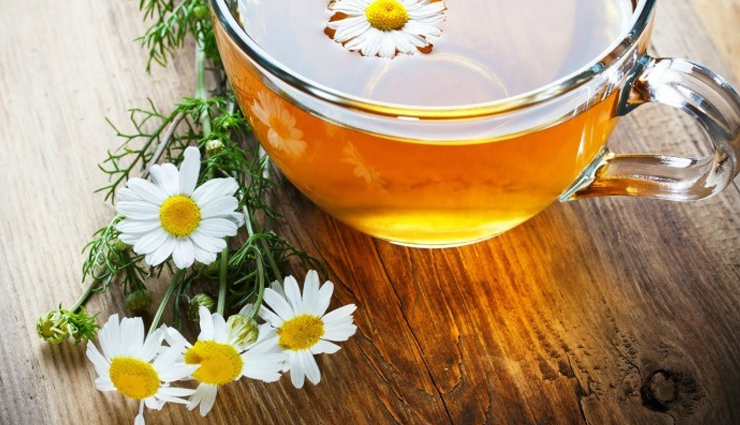
# Feverfew Tea
Feverfew has wide-ranging therapeutic uses in folk medicine but is best known for its ability to both prevent and alleviate a migraine. Parthenolide, a compound found in this herb, is believed to do the trick, along with other substances that inhibit the body from releasing prostaglandins, prevent blood clotting, and ease the vascular muscles. While research studies are still on the fence about whether regular intake of feverfew helps reduce migraine. In some studies, people experienced no benefits, while in others, the herb was found to reduce the debilitating symptoms of migraine like nausea, noise and light sensitivity, and pain in the head.
How to make: Boil a cupful of water and steep 2-8 feverfew leaves in it. Drink this tea at least once every day. The leaves should not be boiled as boiling could break down the parthenolides.
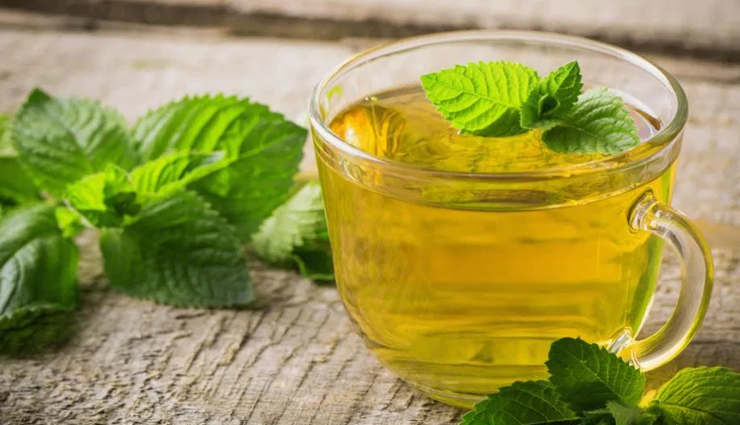
# Peppermint Tea
Peppermint was a popular herbal remedy with the ancient Egyptians and continues to be used in the Middle East and Asia. It’s been listed for over 150 years in the United States Pharmacopoeia. The calming effect of peppermint has found use in a variety of ailments including headache, anxiety-related disorders, and gastric problems. Peppermint contains menthol and methyl salicylate, both of which have anti-spasmodic effects.
How to make: Take 1 heaped teaspoon of dried peppermint leaves and steep in 1 cup of boiled water. Strain and cool. Have a cup of the tea 4–5 times a day between meals.
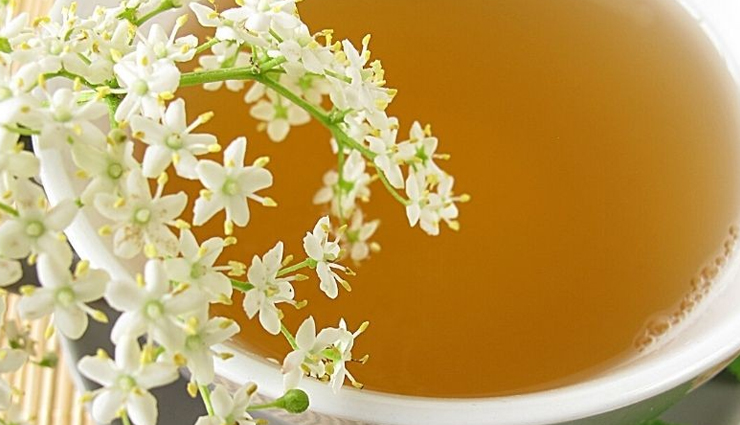
# Meadowsweet Tea
The scent of almonds pervades this herb. It helps to relieve headaches and bring down a fever. Meadowsweet contains salicin, the same compound that’s found in aspirin.
How to make: Steep 1–2 teaspoons of dried meadowsweet flowers in an 8 oz. cup of boiled water. Steep for about 10 minutes, strain and drink. Add honey for taste. You can drink up to 3 cups a day.
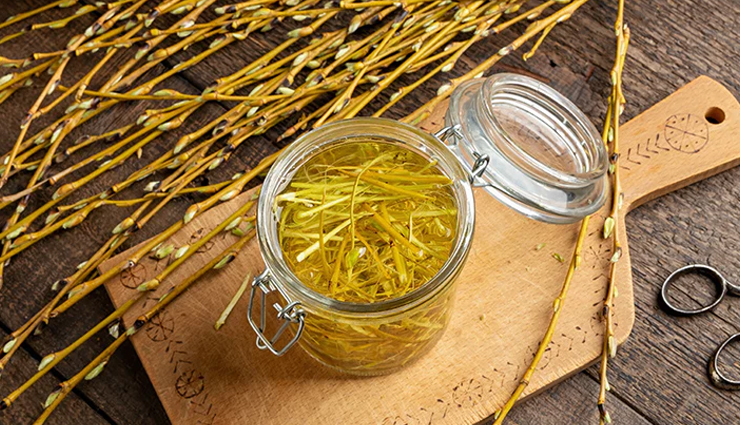
# White Willow Bark
Willow bark has been known to ancient civilizations – the Sumerians, Egyptians, Assyrians, and Greeks. Native Americans too were aware of the healing properties of its bark, when brewed as a tea, to bring down fever, ease headaches, and relieve joint pains. White willow bark is a source of salicin, from which we get pain relieving salicylic acid.
How to make: To make this decoction, take 4 tablespoons and 2 teaspoons of dried flakes of willow bark and add to a pan containing 16 oz water. Cover the pan, simmer for 6 minutes. Strain the decoction. Have a cup of this tea thrice daily.





